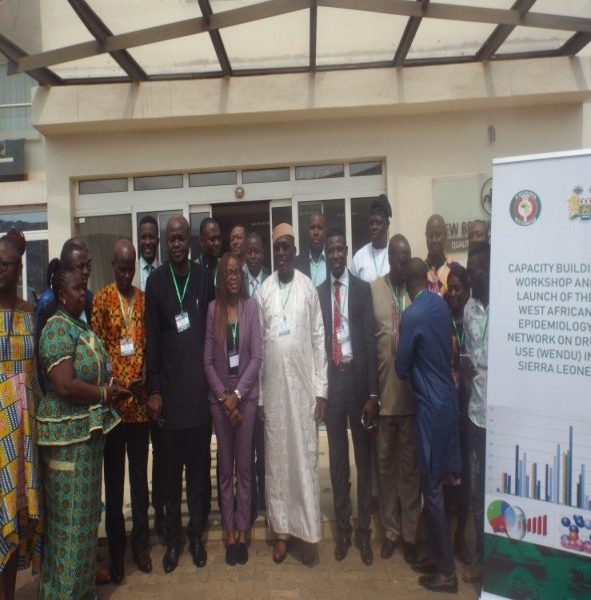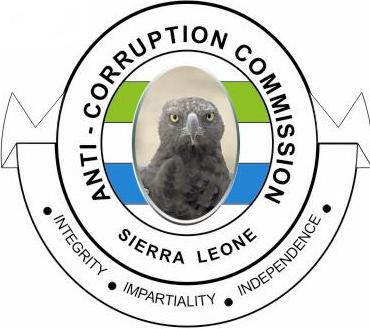SIERRA LEONE: A ballooning drug problem
Some 30 people trying to beat addiction to drugs like cocaine, marijuana, alcohol and heroin – locally known as “brown-brown” – are on a waiting list for ‘City of Rest’, Sierra Leone’s only residential drug rehabilitation centre, in the capital, Freetown. (Photo credit Nancy Palus/IRIN: Those running this centre for substance abuse and mental illness in Freetown are working to expand their capacity to meet a growing need)
“It’s terrible, and the need [for drug abuse intervention] has increased so much. Parents come with their children and we have to refuse them for lack of space,” said the centre’s director, Pastor Morie S. Ngobeh.
The facility – which also helps people with mental illness – has space for 40 patients. “Let nobody deceive you – Sierra Leone’s drug use problem is increasing … daily,” he told IRIN.
Local consumption of illicit drugs is a rising concern in West Africa, which is a trafficking hub, according to participants at a UN conference in Freetown on tackling organized crime and trafficking.
“For every ton of cocaine that passes through Sierra Leone a couple of kilograms will stop here,” Kellie Conteh, coordinator in the Office of National Security, told IRIN.Â
Relapses downÂ
Relapses among drug addicts treated at the centre have diminished significantly since trial periods were introduced in 2008.
At the City of Rest centre for substance abuse and mental illness, a young man looks out a window, a dejected expression on his face. He has failed the centre’s post-treatment trial period, but Pastor Morie S. Ngobeh, the director, has faith that the youth will succeed next time.
In the first week after treatment people leave the centre during the day but return at night. In the second week they spend most of the time outside, with daytime visits to the centre, and are tested to determine whether they have remained drug-free.
“If they do these two weeks with no drugs they are ready to graduate, but only if we’ve set them up with something to do,” Ngobeh said. “But even after this we keep in touch with them for a year.” He showed IRIN the completion certificate.
“Some of them have never had a diploma or certificate before.”
“This feeds into local consumption; our youths, who are out there in their thousands, unemployed and poor, they get into this, and the more of them who get into this habit, the closer we will get to a catastrophe that will be very difficult to handle.”
Most users are poor and often turn to crime to support their habit, Ngobeh said. “Stealing, pilfering, violence in the streets – all these things are happening because of drugs. These youths want money for drugs and they will stop at nothing. Those who … come from rich families take cocaine.”
Prayer, trainingÂ
During the interview in Ngobeh’s office one can hear the laughter of people watching a television show, the voices of others praying, and the rattling of chains used for addicts who are at risk of harming themselves or others. Only three of the 40 residents came voluntarily; the rest were brought in by parents or the police, according to Ngobeh.
City of Rest offers rehabilitation, prayer and counselling, help with finding work, and vocational training to help recovering addicts become self-reliant. “We don’t just send them back into society; we work with parents or sponsors to help find a job for them, or [help them] return to university or college,†he said.
This presents another challenge. About 60 percent of young people in Sierra Leone are unemployed, according to the government, and many youths told IRIN lack of work is the reason many use drugs.
 “Young people are frustrated with being idle,” said Joe*, who sells marijuana in Freetown.
“Young people are frustrated with being idle,” said Joe*, who sells marijuana in Freetown.
Pointing to youths sitting around on benches, smoking joints and downing small sachets of gin – available from vendors everywhere – Joe told IRIN: “We are all skilled workers here … but there is no work. Youths use marijuana to ease their minds.”
Ngobeh said the government should tackle the problem urgently. “They need to look at the situation; otherwise the next generation will be useless. Yes, there’s no joke about it.” He suggested that they make use of recovered addicts in the fight against trafficking in West Africa.
“We need to take a giant to kill a giant. [The authorities] are putting people at the border to stop cocaine, to stop these drugs coming in; but these people have no idea,” Ngobeh commented. “If you train people who are rehabilitated and put them at the border, there is no way drugs will pass there; these people will detect them.”
City of Rest, officially opened in 1996, is financed by private church donations. People come from all over Sierra Leone and neighbouring countries, and even Sierra Leoneans from Europe have sought treatment there. A new facility to house 70 people is being built just outside Freetown; pending financial support, centres will be set up in other regions of Sierra Leone, including Bo and Makeni, Ngobeh said.
*not real name
IRIN
Stay with Sierra Express Media, for your trusted place in news!
© 2010, https:. All rights reserved.






